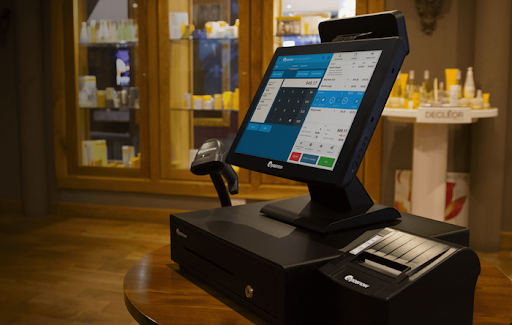In the fast-paced world of hospitality, boosting guest experience is crucial to success. As businesses work to differentiate themselves in a competitive market, the implementation of up-to-date technology plays a crucial role. Among these innovations, Point of Sale (POS) systems have emerged as powerful assets that not only simplify operations but also enrich the overall experience for guests. From hassle-free transactions to in-depth data analytics, a state-of-the-art POS system is more than just a till; it is an essential component of a flourishing hospitality business.
The evolution of POS systems has seen a change from traditional cash registers to sophisticated, cloud-based systems. This transformation has changed how businesses run and engage with their customers. In this article, we will explore what a POS system is, how it can transform hospitality operations, and the best capabilities to look for when selecting a system for your venue. By recognizing the impact of these systems, businesses can harness their potential to create extraordinary experiences for their guests.
Comprehending POS Systems
A POS solution is a electronic system that simplifies the sales process between companies and their clients. At its heart, it combines software and hardware to oversee sales, optimize operations, and improve the overall customer experience. Modern POS solutions go beyond classic cash tills, offering a broad range of features such as payment processing, stock control, and even customer relationship management. As a primary hub for financial and operational data, POS systems serve a vital role in everyday business operations.
The development of POS solutions has seen a significant change from mechanical cash registers to sophisticated cloud-based platforms. This shift reflects a broader trend in technology, allowing businesses to get real-time information from anywhere, boost security features, and improve trustworthiness. With cloud-based systems, companies enjoy automatic upgrades, remote access, and a more scalable infrastructure. Such advancements empower businesses to tailor their POS solutions to meet specific industry needs, thereby enhancing operational effectiveness and adaptability.
In the service industry, the role of POS solutions extends beyond mere sales handling. sites function as a essential tool for improving guest satisfaction, allowing for faster service, personalized services, and better overall management of customer interactions. By incorporating critical features such as mobile transactions and touchless transactions, hospitality businesses can cater to the evolving desires of their clientele. As a result, investing in a contemporary POS system is essential for remaining competitive and ensuring a seamless, pleasant time for clients.
Transforming Enterprise with Contemporary POS Solutions
Contemporary POS systems have radically changed the landscape of enterprises, particularly in the restaurant industry. Gone are the times when only old-fashioned cash registers were in operation. Today’s POS systems are equipped with internet-based technology, allowing real-time data access and management. This shift not only streamlines transactions but also boosts operational efficiency by integrating various enterprise processes like inventory management and sales analytics into a cohesive user-friendly interface.
Adopting a up-to-date POS system enables businesses to deliver an improved customer experience. Customer relations are more seamless and more personalized, thanks to the data-driven insights that these systems deliver. With features like mobile POS functionality, staff can help guests away from the counter, expediting service and creating a more engaging atmosphere. The integration of contactless payments further accelerates the payment process, appealing to a tech-savvy clientele that values convenience.
Additionally, modern POS systems are designed to expand with the business, offering flexible solutions that meet the evolving needs of hospitality venues. As operations expand, these systems can readily integrate extra features and functionalities, ensuring a smooth transition. This adaptability not only assists in maintaining customer satisfaction but also contributes to improved employee productivity, enabling staff to focus on delivering exceptional service rather than getting overwhelmed by paperwork.
Safety and Integration of POS Solutions
The security of POS solutions is paramount in the hospitality industry, where the safeguarding of private customer data is critical. Businesses must ensure that their POS systems are equipped with robust security features to defend against cyber threats. This encompasses encoding of data during exchanges, secure payment processing, and adherence with industry regulations like PCI DSS. Frequent updates and security audits are essential to protect against threats, ensuring that the system remains robust to new threats.
Integration is another key factor of modern POS solutions that greatly enhances efficiency in service functions. A well-integrated POS can seamlessly link with other business systems, such as accounting software and stock management tools, streamlining processes and reducing the risk of human error. This integration means that businesses can manage their operations more effectively, merging customer data and sales insights to make smart decisions that drive success.
Furthermore, the importance of customer relationship management (CRM) software within POS integration cannot be ignored. By linking POS data with CRM systems, businesses can gain a better understanding of their customers’ preferences and actions. This allows tailored experiences, targeted marketing strategies, and ultimately, improved customer engagement. A safe and cohesive POS solution not only enhances functional effectiveness but also contributes greatly to enhancing the overall customer satisfaction in service.

